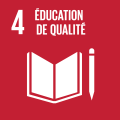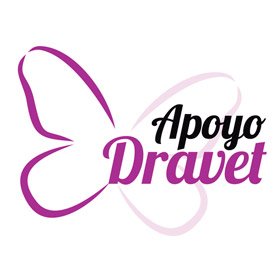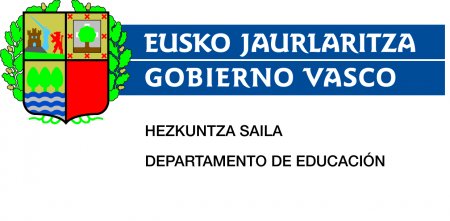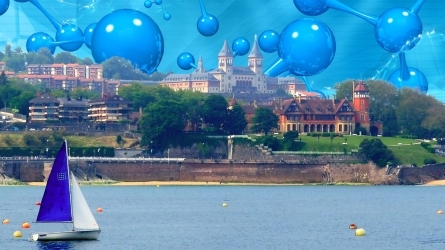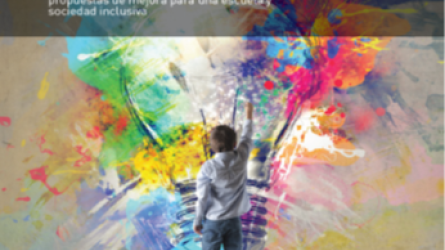
Corresponsabilidad de todos los agentes educativos para la educación inclusiva del alumnado con enfermedades raras
Description
Este Curso tiene homologación del Dpto. de Educación del Gobierno Vasco para el profesorado no universitario (cód. homologación 2068170034).
Este Curso online surge con objeto de dar difusión a la información recabada a través del proyecto de investigación “Sistematización de Buenas Prácticas inclusivas en la respuesta educativa al alumnado con Enfermedades Poco Frecuentes (2018-2020)” con el fin de ofrecer una respuesta educativa exitosa a las necesidades del alumnado con Enfermedades Raras (EERR) durante su escolarización. Ofrece un análisis de buenas prácticas educativas hacia el alumnado con EERR desde el punto de vista de diferentes profesionales del ámbito educativo y familiares de alumnado con EERR, recogiendo la experiencias de éxito de dos centros educativos de la Comunidad Autónoma Vasca, así como experiencias de distintos centros educativos de otras 11 comunidades autónomas a nivel nacional. A lo largo del Curso se presentan también otras iniciativas y proyectos de carácter nacional e internacional como modelos de trabajo que fomentan escuelas y entornos sociales más inclusivos a partir de la coordinación entre el ámbito educativo, sanitario y social. La participación de los y las profesionales, personas con EERR y familiares, en el análisis y reflexión, sobre los aspectos críticos en los procesos de inclusión, se estima que además de enriquecer los contenidos del curso servirán para fortalecer el modelo colaborativo de buenas prácticas.
Objectives
Analizar experiencias de escolarización de alumnado con EERR en el estado español y en otros países.
Analizar buenas prácticas inclusivas a la hora de atender a este colectivo desde los planteamientos de las familias afectadas y de las y los profesionales de los centros educativos.
Comprender la importancia de formas de trabajo que implican una visión humanista de la educación y compromiso social tales como las que impulsan las asociaciones, el Diseño Universal de Aprendizaje y el ApS, en la atención a la diversidad.
Presentar una visión interdisciplinar de distintos profesionales del ámbito de la educación, para un abordaje inclusivo e interdisciplinar de las EERR.
Activity directed to
- University student
- Students not from university
- Teachers
- Professionals
- Familias
Program
09-11-2020 / 15-11-2020
Sistematización de Buenas Prácticas Inclusivas en la Respuesta Educativa al Alumnado con EERR
“Diseño universal de aprendizaje ”
- Zuriñe Gaintza
16-11-2020 / 22-11-2020
Desde la identificación de las necesidades del alumnado con EERR a la inclusión social y educativa
- Luis Miguel Aras
23-11-2020 / 29-11-2020
Desarrollo de proyectos compartidos, participación y trabajo colaborativo entre la escuela como comunidad y contextos
- Nagore Ozerinjauregi
30-11-2020 / 06-12-2020
Mejora de la calidad de vida del alumnado con EERR a partir de la metodología de ApS y el voluntariado
Directors
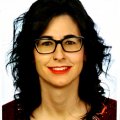
Nagore Ozerinjauregi Beldarrain
UPV/EHU
Doctor of Psychology and assistant professor in the Department of Didactics and School Organization at the Faculty of Education, Philosophy and Anthropology of the UPV / EHU. 13 years of experience in university teaching with senior professor accreditation in the field of Social Science knowledge. Currently a professor in the degrees of Pedagogy and Social Education and in the Master for Teacher Training and in the Master of Research on Socio-Educational Contexts. Experience as an educator and trainer in childhood, adulthood and senior citizens for 7 years in various educational, social and health centers. Research activity in the field of inclusive education, child abuse and situations of disadvantage and social risk, participating in different research projects and contracts. Member of the INKLUNI research team. Author or co-author of more than 20 scientific articles, books and book chapters.
Speakers
Dr. Luis Miguel Aras Portilla is a Spanish doctor specialized in Family and Community Medicine, an expert in palliative care who has worked in recent years in the field of hospital and pre-hospital emergencies. With the diagnosis of his youngest daughter of Dravet Syndrome, he now shares his work in vital emergencies with the management of patient-promoted entities that encourage research in neurosciences. After being part of other entities, since May 2015, he has been director of the ApoyoDravet association, an association that works to implement projects in the fields of precision medicine, patient-centred technology and social innovation. All this with the aim of improving the quality of life of those affected and their families and finding a cure for Dravet syndrome. Dr. Aras currently coordinates the INDRE research network, and advises various companies, research centres and other entities in the scientific and technological fields.
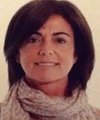
Igone Aróstegui Barandica
PhD in Philosophy and Educational Sciences and assistant professor in the Department of Didactics and School Organization in the Faculty of Education of the UPV/EHU in Bilbao. 10 years of experience in university teaching, with accreditation as an aggregate teacher. Teacher in the degrees of Infant and Primary Education, and in the University Master in Teacher Training. Experience as a teacher of special needs for 10 years, and in training for the employment of people with disabilities and people at risk of exclusion. Research activity in the field of inclusive education, training and accompaniment in the process of incorporation into employment of people in situations of disadvantage and social risk, participating in different projects and research contracts. Member of the INKLUNI research team.

Naiara Berasategi
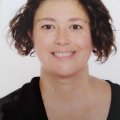
Susana Carrey Braum
My name is Susan Carrey. In May 2011 I was mother of a girl who was born with Recessive Dystrophic Epidermolysis Bullosa (Butterfly Skin). A disease considered rare that I had not heard about until that moment. As a result, together with my sister and a group of friends we founded Berritxuak, a non-profit association that aims to give visibility to these rare diseases and raise money for different research projects. From Berritxuak we have collaborated with: Debra international butterfly skin association, with Dravet Dravet syndrome association, with Stop San Filippo, for a clinical trial carried out between CIEMAT-UC3M-IISFJD1 and La Paz hospital for the treatment of butterfly skin, with the INKLUNI research team of the University of the Basque Country for the publication of several articles in scientific journals on the inclusive schooling of students suffering from minority diseases...
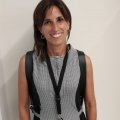
Leire Darretxe Urrutxi
Universidad del País Vasco
PhD in Pedagogy, Pedagogy, Master in Special Education and Diploma in Teaching of Early Childhood Education. She has also trained in a biennial course on educational psychomotor practice and specialization course in Early Care. Since 2005 she is a teacher and researcher at the University of the Basque Country. Her research has deepened in various matters related to the field of educational and social inclusion, specifically in community action and vulnerable groups such as children in a situation of vulnerability and people with rare diseases. She has participated in various research projects (Training and Research Units in Education, Culture and Society; Accredited Group Category A Basque Government; Consolidated group of the University of the Basque Country; R+D+i; University-Society; Erasmus+, OTRI) and various educational innovation projects. She has made several stays as visiting professor in Spain (Sevilla, Vigo), UK (Sheffield, Exeter, Southampton), Holland, Ecuador and Chile.
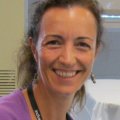
Odet Moliner García
Odet Moliner García is a Doctor in Philosophy and Educational Sciences from the University of Valencia and Professor in the Department of Pedagogy and Didactics of the CCSS, Language and Literature at the Universitat Jaume I in Castellón. She focuses her teaching activity on the Master's Degree in Psychopedagogy and the Teacher's Degrees in Early Childhood and Primary Education. Member of the MEICRI Research Group (Educational Improvement and Critical Citizenship) at the Universitat Jaume I, she coordinates the line of research on inclusive education. She is a regular researcher at LISIS (Laboratoire International sur l'inclusion scolaire)

Javier Monzón González
licenciado en Pedagogía con especialización en Pedagogía Terapéutica por la Universidad del País Vasco/Euskal Herriko Unibertsitatea y doctor en Ciencias de la Educación por la misma universidad. Profesor titular del Departamento de Didáctica y Organización Escolar en la Facultad de Educación, Filosofía y Antropología, sección de Magisterio, actualmente es director de Innovación y Desarrollo en Campus de Gipuzkoa y director del Centro Carlos Santamaría en la Universidad del País Vasco/Euskal Herriko Unibertsitatea Tanto la labor docente como investigadora se centra en la escuela inclusiva, servicios de apoyo a la escolarización, el asesoramiento educativo y la formación de profesorado.

Sebastià Verger Gelabert
UIB
PHD in Educational Sciences, Lecturer of the Applied Pedagogy and Educational Psychology Department at the University of Balearic Islands, Member of the consolidated research group GREID (Inclusive Education and Diversity), director of the University Postgraduate Specialization in Early Care and co-director of the INEDITHOS project. His research focuses on Inclusive Education and Hospital Pedagogy. He has participated in several research projects funded under the calls for R + D + I, among which: "Educational analysis and intervention of children with chronic diseases" and "Educational solutions to improve the quality of life of children with rare disease through an innovative and transdisciplinary intervention”
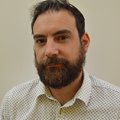
Federico R. Waitoller
Federico R. Waitoller is an associate professor at the Department of Special Education at the University of Illinois at Chicago. His research focuses on inclusive education and racial inequities for students with disabilities. Has been published in top-tier journals such as Review of Educational Research, Teaching and Teacher Education, Teacher College Record, Harvard Educational Review, Journal of Special Education, Remedial and Special Education, and Journal of Disability Policy Studies. Dr. Waitolleres is co-editor of Inclusive Education: Examining Equity in Five Continents of Harvard Education Press, and his New Book is called Excluded by Choice: Urban Students with Disabilities in the Education Marketplace. In 2011 he was awarded The American Association for Educational Research (AERA) dissertation fellowship and in 2019 he received the 2018 Investigator of the Year Award in Social Sciences from the University of Illinois at Chicago. In 2020, he received a Fulbright scholarship.
Registration fees
| Registration | Until 11-11-2020 |
|---|---|
| 20,00 EUR | |
| 20,00 EUR | |
| 20,00 EUR | |
| 0 EUR | |
| 0 EUR |
Sustainable development goals
Agenda 2030 is the new international development agenda approved in September 2015 by the United Nations. This agenda aims to be an instrument to favour sustainable human development all over the planet, and its main pillars are the eradication of poverty, a reduction in equality and vulnerability and fostering sustainability. It is a unique opportunity to transform the world up to 2030 and guarantee human rights for all.

4 - Quality education
Guarantee quality education that is inclusive and equitable and foster opportunities for lifelong learning for everyone. Key issues: free-of-charge, equitable and quality education, access to higher education and training on an equal basis, education for sustainable development, suitable education centres for persons with disabilities, and safe, non-violent and efficient learning environments.
More information